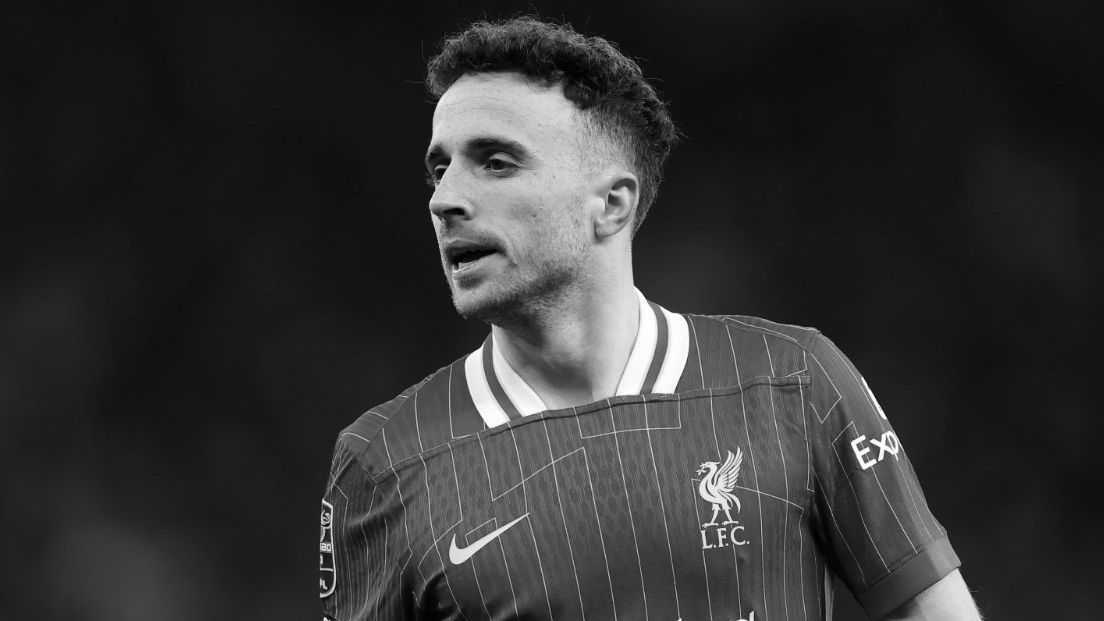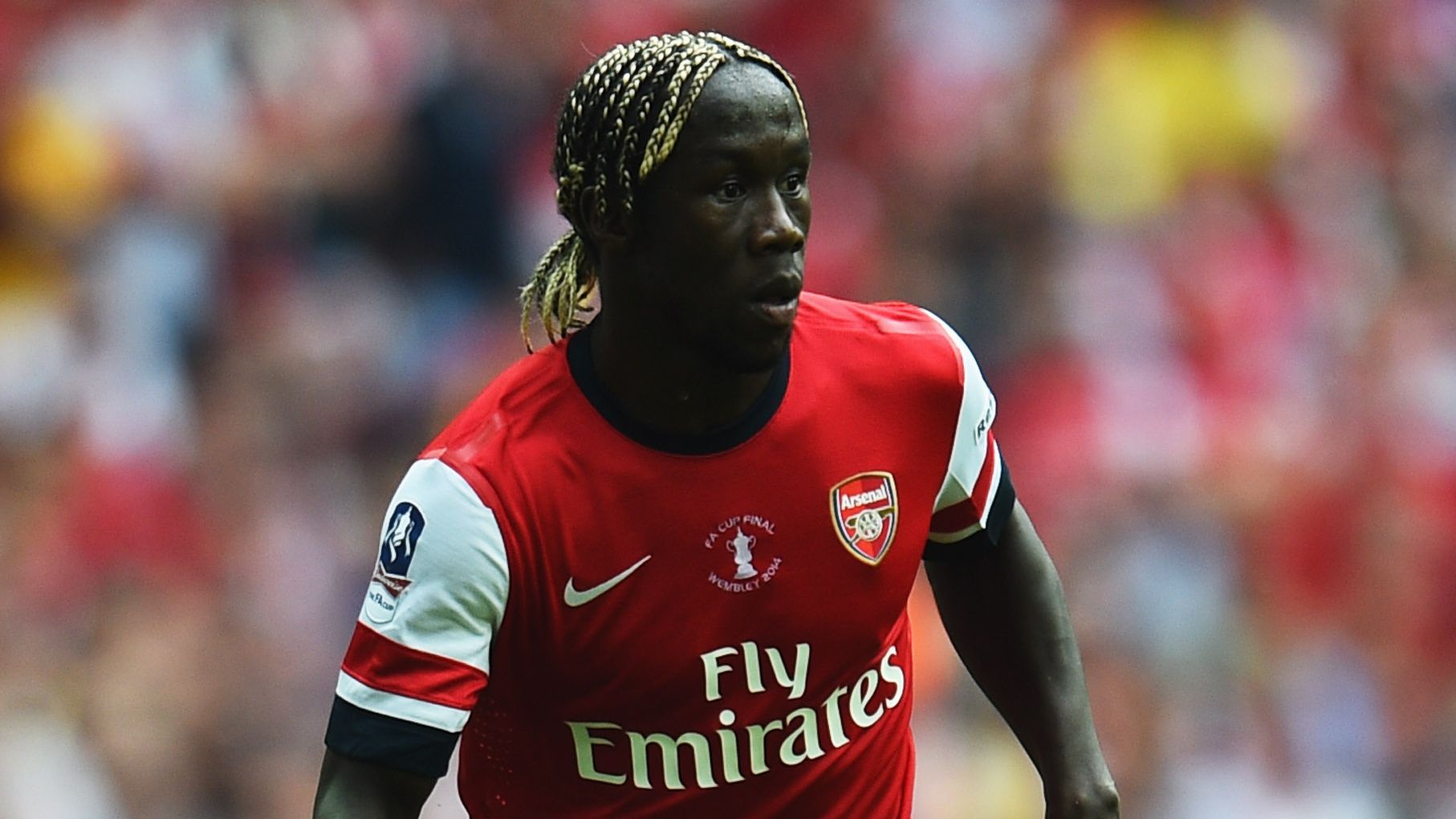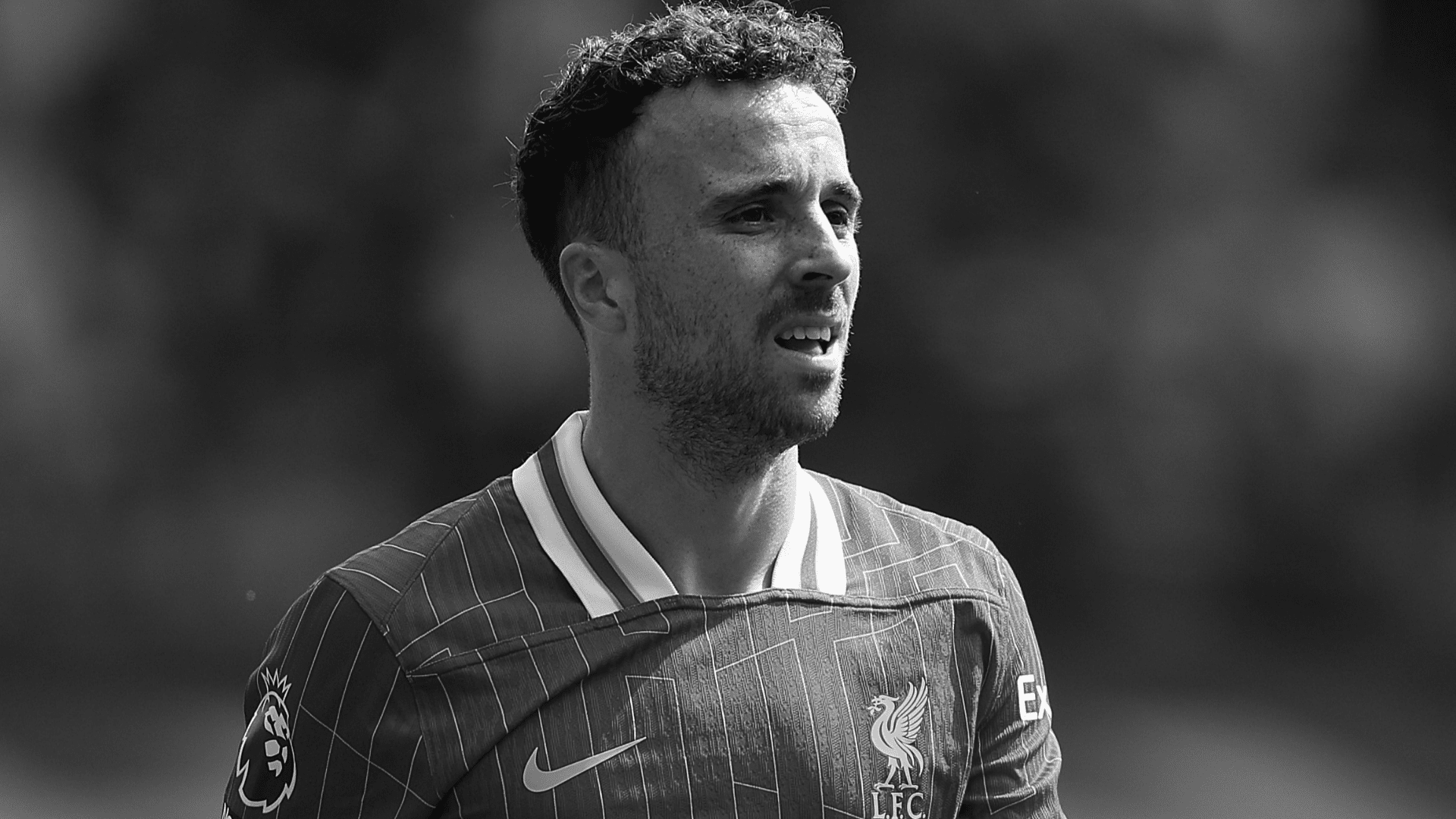Facing Heartbreak: Liverpool Players Encouraged to Share Their Sorrow
In the wake of tragedy, Liverpool stars are being urged to confront their emotions and find strength in unity, as former player Bacary Sagna emphasizes the importance of voicing grief after the untimely loss of Diogo Jota. This heartfelt advice highlights how personal loss can deeply impact professional lives, pushing teams to prioritize mental well-being alongside their sport.
- Tragic loss of Liverpool’s Diogo Jota in a fatal car accident
- Deep sorrow among Reds players and devoted fans
- Sagna’s encouragement for open conversations on coping



Sagna’s Insights on Emotional Challenges for Liverpool Stars
Bacary Sagna, who previously defended for Arsenal and Manchester City, argues that Diogo Jota’s teammates at Liverpool might face significant hurdles in preparing for the new season after the 28-year-old’s devastating car accident. As a former France international, Sagna believes it’s essential for the group to express their feelings openly, recognizing that dealing with such pain will prove extremely challenging and require collective support.
Personal Reflections from Sagna’s Interview
During his conversation with CNN, Sagna shared: “The memory will linger in their minds nonstop. You’ll notice an empty chair in the locker area, at meals, and even on the team transport, which is why I’m urging them to share their thoughts. Above all, we’re individuals with emotions; we often spend more hours with colleagues than loved ones at home, making this situation overwhelming. It’s tough to comprehend the reasons behind it, yet moving forward and adapting is necessary, even if it feels insurmountable.”
Context of the Tragedy and Team’s Response
In the accident on July 3, both Diogo Jota and his brother Andre Silva lost their lives, prompting several Liverpool players to journey to Portugal for the funeral of the ex-Wolves standout earlier this month, prior to resuming their pre-season routines. Drawing from his own experience-having endured the loss of his brother in 2008-Sagna may offer a unique perspective on the turmoil some Liverpool athletes are currently facing, helping to foster empathy within the squad.
Potential Struggles on the Field
Sagna elaborated: “In my case, I was mentally absent during my second year; I began making basic errors, like fumbling simple passes, as if my thoughts were dragging. The same could happen to some Liverpool players-they might struggle to fully engage in games because their focus keeps drifting back to the loss.”
Advocating for Professional Support Among Liverpool’s Squad
Beyond casual discussions, Sagna recommends that certain Liverpool team members explore professional counseling to navigate their grief effectively.
The Benefits of Opening Up
“We delved into topics like everyday life and deeper issues, and what stood out was the sense of ease I gained afterward. I wondered why I hadn’t sought help sooner; I lacked the bravery and underestimated how vital it is to express oneself. I assumed others wouldn’t relate, but they encounter endless stories and insights. Sharing creates a sense of liberation, backed by experiences and evidence, making it an essential step forward,” the Frenchman explained.
The Emotional Toll on Liverpool FC: Players Sharing Grief After Diogo Jota’s Passing
Understanding Player Grief in Football
In the world of professional football, moments of loss can deeply affect teams like Liverpool FC, where camaraderie and shared experiences form the backbone of success. Liverpool players, known for their resilient spirit and tight-knit bond, are often encouraged to openly discuss their emotions during challenging times. This approach to grief, particularly in the hypothetical scenario of Diogo Jota’s passing, highlights the importance of mental health support in high-stakes sports environments.
Grief among athletes isn’t just about personal loss; it can impact performance, team dynamics, and overall morale. For Liverpool players, voicing grief over a teammate’s passing involves navigating emotions while maintaining focus on the pitch. Key aspects include:
- Emotional Expression as a Team Strategy: Coaches and sports psychologists emphasize that sharing grief can foster unity. Players like Virgil van Dijk and Mohamed Salah might use this as a way to honor Jota’s legacy, turning sorrow into motivation for future matches.
- The Role of Support Networks: Liverpool’s setup includes access to counselors and team sessions, helping players process grief without isolation.
- Long-Term Benefits for Mental Health: Studies show that verbalizing grief reduces stress, with athletes reporting better focus and resilience when encouraged to speak openly.
How Liverpool FC Encourages Players to Voice Their Grief
Coaches and club management at Liverpool FC play a pivotal role in creating safe spaces for players to express grief, especially after events involving key figures like Diogo Jota. This process often involves structured programs that blend professional counseling with informal team discussions, ensuring grief doesn’t hinder their pursuit of Premier League glory.
Under Jurgen Klopp’s leadership, players are urged to share personal stories, which can strengthen emotional bonds. For instance:
- Dedicated Grief Workshops: These sessions allow players to discuss how Jota’s passing affects them individually, incorporating activities like group talks or journaling to ease the burden.
- Integration with Training Routines: Grief management might include mindfulness exercises during training, helping players like Trent Alexander-Arnold channel emotions into positive energy on the field.
- Peer Support Initiatives: Captains and senior players often lead conversations, encouraging younger squad members to voice Liverpool player grief over Diogo Jota’s passing in a non-judgmental setting.
In practice, this encouragement extends beyond the club, with social media platforms used by players to publicly share tributes. This not only aids personal healing but also connects with global fanbases, amplifying the human side of football.
Mental Health Resources for Liverpool Players
Supporting Liverpool players through grief requires a robust framework of resources, tailored to the demands of professional sports. From in-house programs to external partnerships, the club prioritizes mental well-being to ensure players can cope effectively.
Here’s a breakdown of key resources:
- Club-Provided Counseling: Liverpool FC partners with mental health experts who offer one-on-one sessions, focusing on grief related to teammates like Diogo Jota. This includes coping strategies for dealing with loss during intense schedules.
- Team-Building Activities: Regular retreats or bonding sessions help players express grief collectively, such as through memorial gestures or shared Liverpool player stories about Jota’s contributions.
- External Collaborations: The club works with organizations like the Professional Footballers’ Association (PFA), providing access to grief specialists who address the unique pressures of elite sports.
These resources are designed to be accessible, with players encouraged to seek help without fear of stigma. For example, anonymous hotlines and apps tailored for athletes ensure that even subtle signs of grief, such as decreased performance or withdrawal, are addressed promptly.
The Role of Fans and Community in Supporting Grief
Liverpool’s passionate fanbase often plays a crucial part in helping players voice their grief, creating an environment where emotional expression is normalized. Community events and fan-led initiatives can amplify this support, making grief a shared experience rather than an individual burden.
Consider these fan-driven efforts:
- Tribute Campaigns: Online forums and match-day displays allow fans to share messages, giving players like Sadio Mane a platform to see broader support for grieving over Diogo Jota’s passing.
- Charity and Awareness Drives: Fans might organize fundraisers for mental health causes, indirectly encouraging players to open up about their feelings.
- Social Media Engagement: Hashtags like #LiverpoolGriefSupport help build a community dialogue, where players can witness the therapeutic value of public sharing.
By leveraging fan involvement, Liverpool FC enhances its internal efforts, ensuring that grief expression becomes a pathway to healing and continued success on the field.
Navigating Grief in Future Matches and Seasons
As Liverpool players continue to deal with grief, strategies for ongoing support become essential, especially during key fixtures. This involves balancing emotional processing with the rigors of competition, where every game demands peak performance.
Key tactics include:
- Pre-Match Rituals: Incorporating moments of silence or dedications to honor Jota, allowing players to voice grief symbolically before matches.
- Performance Monitoring: Coaches track how grief affects players’ stats, using data to adjust training and provide targeted emotional support.
- Long-Term Resilience Programs: Season-long initiatives focus on building mental toughness, helping players like Andrew Robertson voice grief without long-term impacts on their careers.
Maintaining this focus ensures that Liverpool players can transform their grief into a source of strength, keeping Jota’s memory alive through their play.
Expert Insights on Grief and Football Culture
Insights from sports psychologists reveal that encouraging grief expression in teams like Liverpool FC can lead to better outcomes. For instance, research indicates that verbalizing loss improves team cohesion by up to “{$20%}$ in high-pressure environments. Players are often trained to use grief as a motivator, turning personal loss into collective drive.
This approach aligns with broader football culture trends, where clubs increasingly prioritize mental health. By fostering open dialogues, Liverpool sets a precedent for how to handle player grief over Diogo Jota’s passing effectively.









